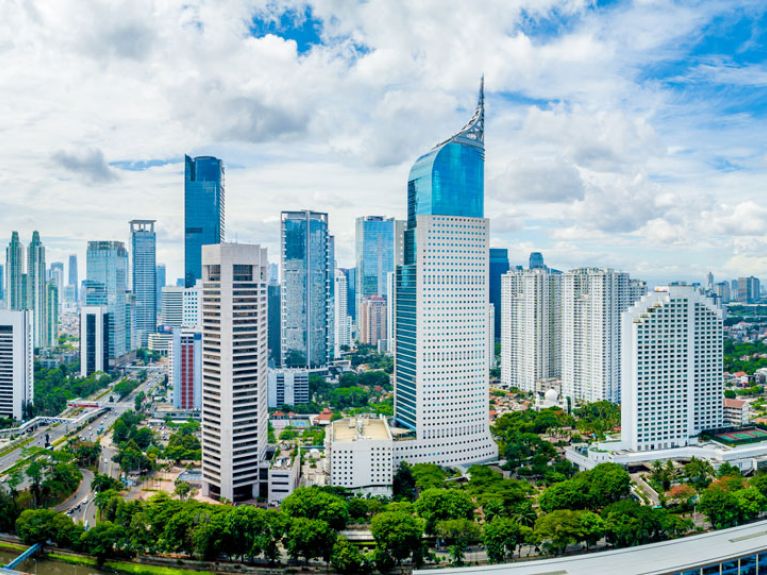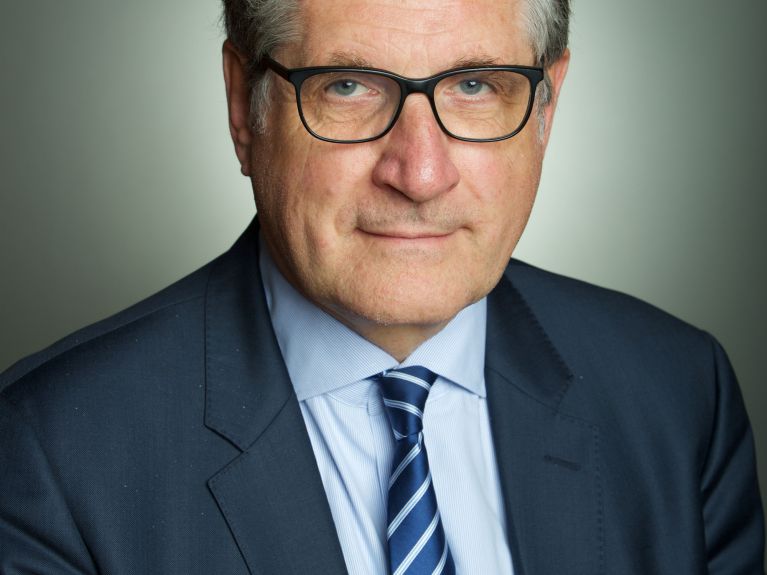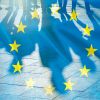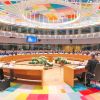“The EU and ASEAN are predestined for a close partnership”
An interview with Ambassador Dr Peter Schoof about Germany’s new guidelines for its future Indo-Pacific policy.

Ambassador Schoof, in September 2020 the German government adopted guidelines for its future policy in the Indo-Pacific region. Just to clarify, which geographical area does Indo-Pacific encompass?
Germany is one of just a few countries in the world that has combined its numerous measures – both existing and planned – in the Indo-Pacific region to create a coherent political framework. It is important to emphasise that these are guidelines for the entire Federal Government, underlining its common desire to engage to an even greater extent as an influential actor and partner in the Indo-Pacific region and to help maintain the rule-based order in place there.
The Federal Government considers the Indo-Pacific to be the entire region characterised by the Indian Ocean and the Pacific, in which strategic projections compete. The Indo-Pacific is not a question of geography or clearly-defined geographical area.

The guidelines follow a cooperative approach that stress inclusivity.
Other countries that have engaged conceptually with the Indo-Pacific include Japan, the USA, Australia, India and France, as well as ASEAN as a whole with its “ASEAN Outlook on the Indo-Pacific”. Most of the concepts follow a cooperative approach towards China, as do the German guidelines, which stress that inclusivity is an important principle.
The region includes China, India and Japan, all of which have large populations and powerful economies. Are we right in thinking that a key focus is on strengthening relations with the ASEAN countries?
The Indo-Pacific is a region of growing importance for Germany and Europe – one that offers great opportunities for us but also poses challenges, some of them global. Politically, we are working ever more closely together with many countries in the Indo-Pacific region on a wide range of different issues – not least within the framework of the Alliance for Multilateralism, but also in other forums such as the G20, the G7, the UN and bilateral formats.
One important objective of the guidelines is to diversify our relations in Asia.
The Indo-Pacific is home to some of our most important trade partners, such as China and Japan. One important objective of our Indo-Pacific guidelines is to diversify our relations in Asia on both a political and economic level. We want to make sure that we do not become economically dependent on one single market. At the same time, our guidelines do not exclude any partner, either. Instead, our inclusive policy approach, which encompasses all partners in the Indo-Pacific, aims to counteract the rise of bipolar structures.
In purely geographical terms, the ASEAN member states are situated at the heart of the Indo-Pacific region; with a combined population of 560 million and corresponding economic strength, they may be smaller than China and India, yet their weight should not be underestimated. We will also see considerable economic growth here in the future, and the importance of Southeast Asia for German and European trade will continue to increase.
ASEAN is also at the heart of the Indo-Pacific strategies of other countries, and the “ASEAN Outlook on the Indo-Pacific” presented by ASEAN itself in 2019 stresses the central role that ASEAN plays in this region. We believe it is important to continue to engage in an exchange with ASEAN and its member states and not to pursue a policy that is detached from ASEAN.
For many years you worked at Germany’s Permanent Representation in Brussels: is ASEAN not predestined for a close partnership with the EU?
My professional career has enabled me to work on European Union issues on a number of occasions: I worked for the Permanent Representation of Germany to the EU in Brussels twice, once as the head of Common Foreign and Security Policy and later as a press spokesperson; subsequently I was Deputy Director for European Affairs at the German Foreign Office and later was Commissioner for Bilateral Relations with the EU Member States.
The European Union and the Association of Southeast Asian Nations are the world’s furthest-developed regional organisations.
The European Union and the Association of Southeast Asian Nations are the world’s furthest-developed regional organisations, and as such are predestined for a close partnership. This is also the reason why the EU has already been an ASEAN dialogue partner for 43 years, and last year decided, together with the ASEAN member states, to raise its relations to the level of a strategic partnership. We are also happy that the EU member states of France and Italy have now joined Germany in becoming ASEAN development partners.
Germany emphatically supports the EU’s efforts to become an ASEAN strategic partner. We are currently committed to this during our EU Council Presidency. The bilateral free trade agreements – which have already been concluded with Vietnam and Singapore, and will hopefully be signed with Indonesia next year – are generating considerable impetus that will benefit both sides. We are also working towards a free trade agreement between the EU and ASEAN as a whole. The negotiations on a Comprehensive Air Transport Agreement (CATA) between the EU and ASEAN are currently making very pleasing progress. This will be the world’s first air transport agreement between two regions of its kind.
Relations with ASEAN are to be strengthened, and Germany even engages in inter-governmental consultations with China and India, yet one key country does not appear to be particularly high on the agenda: Japan. Despite this country being an ideal partner for Germany in many respects.
We have enjoyed a close friendship for many years with Japan, a country that shares our values. Next year we will be celebrating the 160th anniversary of our bilateral relations. We have engaged in regular and longstanding exchange with Japan on both a bilateral and multilateral basis within the EU framework, with many established formats on all levels. This does not mean that there is no further scope for building on these close relations in certain areas; incidentally, this could also be done through joint projects in the ASEAN region, and to this extent the guidelines also send out a strong signal to Japan.
Japan’s Foreign Minister Motegi has already discussed the guidelines with German Foreign Minister Maas, by the way. Japan expressly welcomes Germany’s Indo-Pacific guidelines and has paid tribute to them as a sign of our will to step up our engagement in the region.


